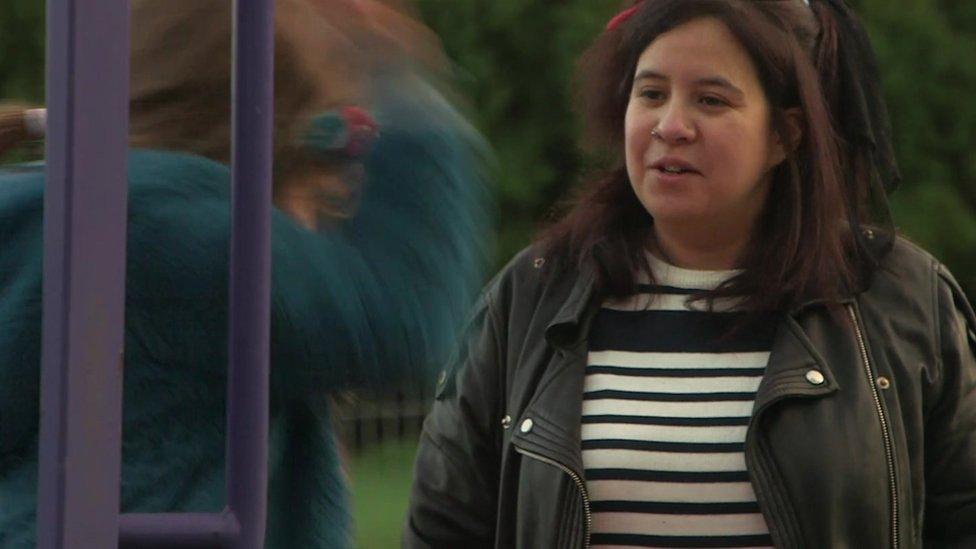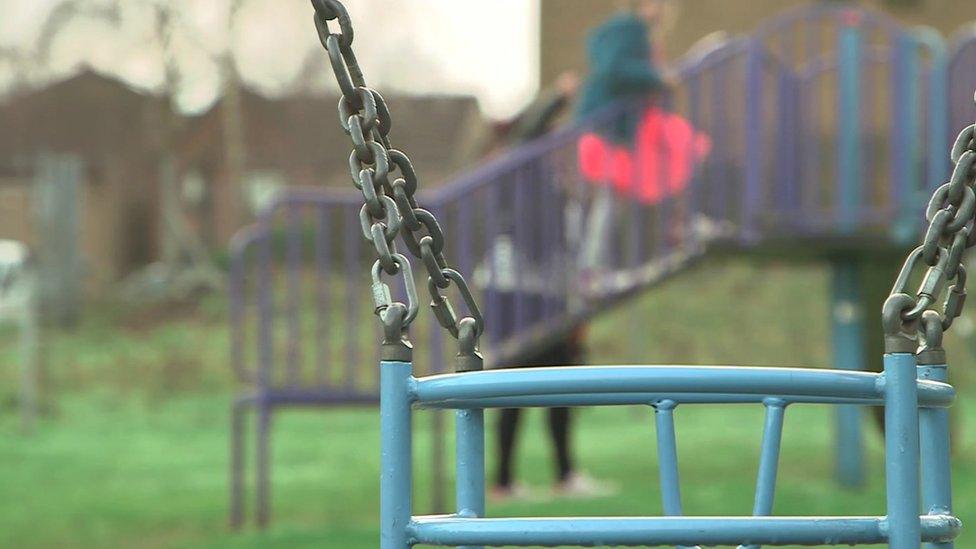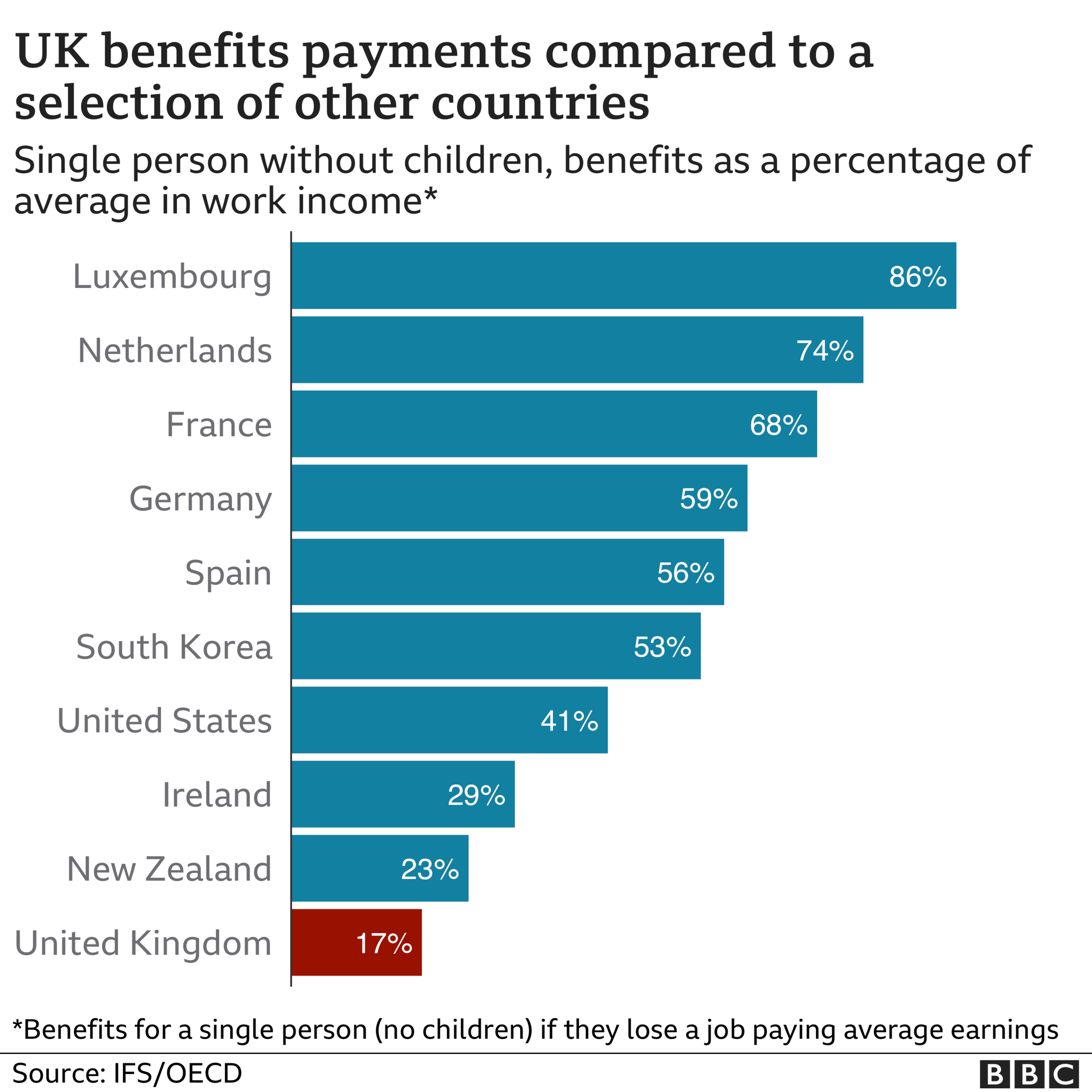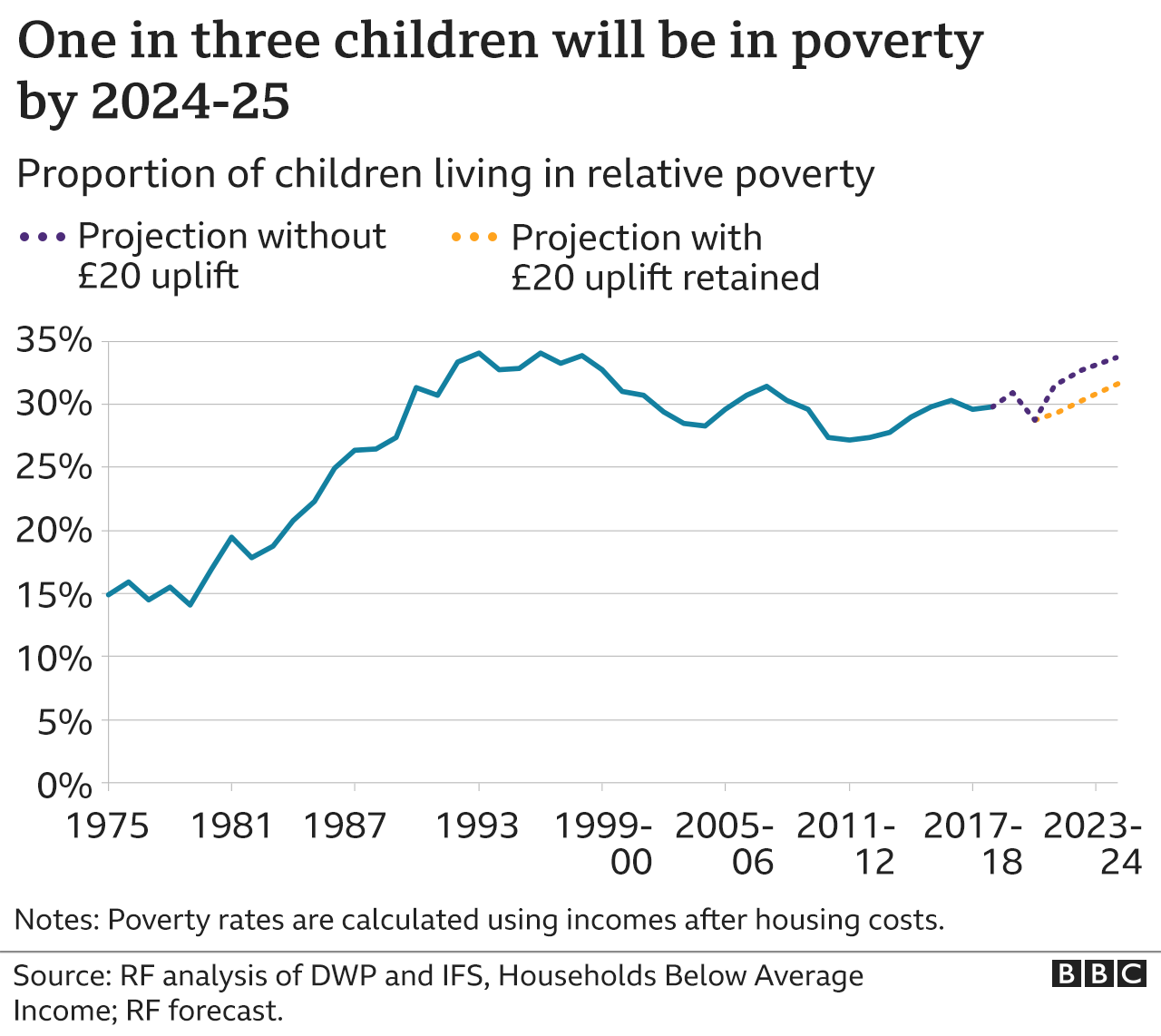Ending benefit lifeline risks health of millions, medics say
- Published

"Obviously we will find a way to survive, because we have to, but it's a lot lot harder," said single mum, Rebecca
Failing to extend a £20 lockdown benefit boost will harm the health of millions of people for decades, leading health organisations have told Prime Minister Boris Johnson in a letter.
Introduced last year, the £20-a-week uplift is due to end in April.
Claimants say it has been a lifeline and dread losing it.
Work and Pensions Secretary Therese Coffey has hinted the government could be moving closer to extending the rise but says there is no decision yet.
Now, groups representing doctors, nurses and social workers, say health inequalities laid bare by Covid will worsen if the uplift to universal credit is scrapped. , external
Their comments echo those of campaigners and claimants - such as single mother Rebecca, from the east of England, who told BBC News withdrawing the extra cash would be "cruel".
Rebecca, who asked the BBC not to use her full name, has an eight-year-old daughter and relies on universal credit to supplement her earnings from working 14 hours a week for a charity.
She has been receiving the benefit for two years, the first of which, before the extra payment was introduced, she describes as "brutal".
And by October 2019, "we had no money for food".
"I put a post on Facebook, asking where I could go safely with a kid for free food," she said.

In the end, it was gifts from friends and food parcels from a local church that saw them through.
The introduction of the £20 boost had provided a buffer, said Rebecca.
"At least I had something coming in," she said.
"The £20 is mostly food for her - I eat whatever I can.
"Obviously we will find a way to survive, because we have to, but it's a lot lot harder."
'Health crisis'
The letter calls on the prime minister to make the temporary increase to universal credit and working tax credit permanent from April and provide the same uplift to other key benefits.
"As organisations working across health and care, we see the irrefutable evidence that poverty has significant negative impacts on individuals, their families and society more widely," it says.
The signatories include:
the Royal College of Nursing
the Royal College of General Practitioners
the Royal College of Paediatrics and Child Health
the Royal College of Psychiatrists
the British Association of Social Workers
the British Psychological Society
mental-health charity Mind
The letter calls the extra £20 "an investment in our nation's health, ensuring many of those on the lowest incomes have access to essentials like food or heating".
"In a year marked by worry and uncertainty, the uplift has been a preventative lifeline keeping many afloat, protecting them from financial instability, debt and worsening mental health," it says.
And if it is discontinued, "overnight 6.2 million families will face a £1,040 cut to their incomes".
"We cannot plan for the UK's economic recovery only to face another escalating health crisis for those on the lowest incomes," the letter says.
'Recognise need'
On Wednesday, Ms Coffey told MPs: "We have the effects of this pandemic that are ongoing.
"And we recognise the need to continue to support people."
She rejected the idea the extra £20 "reduces work incentives", telling the Work and Pensions Committee this "steady stream of money would be more beneficial to claimants" than an alternative option of a one-off payment.
The £20 boost, which costs about £6bn, came after years of cuts to benefits.
Changes since the Conservatives came to power in 2010, initially in coalition, mean spending on working-age benefits is about £32bn lower this year than it would have been, the Institute for Fiscal Studies has calculated.
And even with the extra £20, a single person with no children who loses their job in the UK this year will receive just 17% of average earnings in benefit payments, the lowest figure among high-income economies.


The cuts to welfare have also been blamed by campaigners and charities for the increase in child poverty since 2010.
Another think tank, the Resolution Foundation, has calculated even if the £20 boost is made permanent, child poverty will continue to rise.
And by 2024, one third of children will be living in poverty.


Rebecca said she knew how to budget but still struggled to make ends meet, even with the extra £20 a week.
Without it, "every day is stress because you don't know how you're going to make it for the next month".
"You're always living on your toes," she said.
"And you're always having to budget minute by minute and budget to the very penny."
"When already you are scraping for money, £20 is masses."
A government spokesman said: "We are committed to supporting the lowest-paid families through the pandemic and beyond to ensure that nobody is left behind."
He said support had been targeted at those most in need, including "raising the living wage, spending hundreds of billions to safeguard jobs, boosting welfare support by billions and introducing the £170m Covid Winter Grant Scheme".